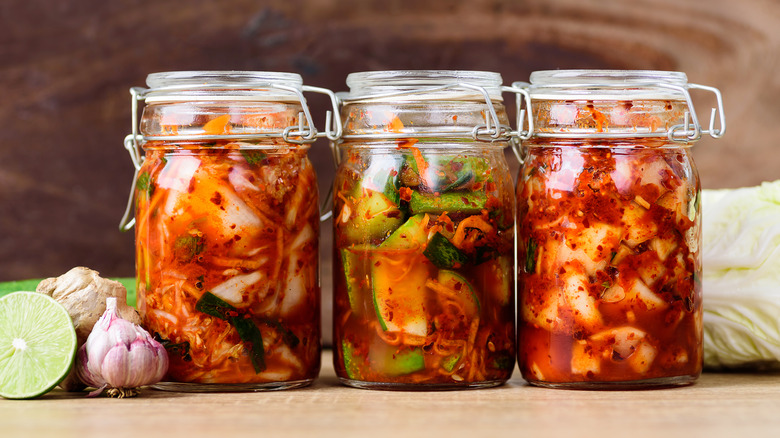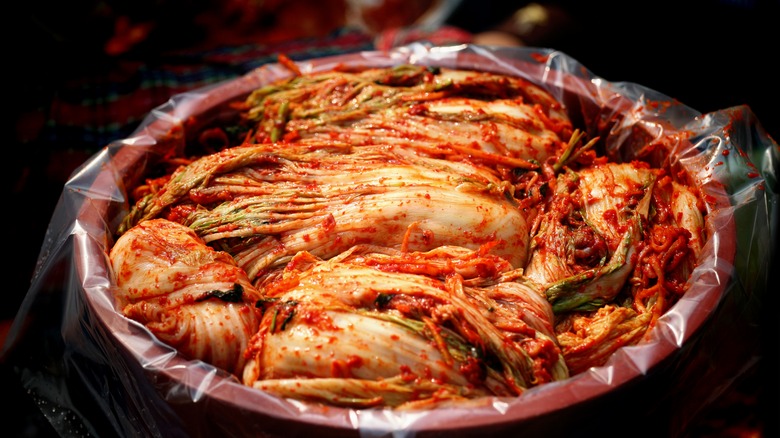How Long Does Kimchi Really Need To Ferment?
Kimchi is such a huge part of Korean cuisine that it's served for breakfast, lunch, and dinner. The spicy pickled banchan, or side dish, is a staple of every meal. While Americans tend to put it on their tacos, Korean street vendors use it as a condiment on hot dogs, mothers pack it with rice in their kids' lunch boxes, and restaurant diners place it on a lettuce leaf with their galbi marinated meat.
In the past decade, kimchi has become a grocery store staple in the U.S. with most stores carrying jars of kimchi in the produce section next to the wonton wrappers. And while many South Koreans buy their kimchi from their local markets, others make their own kimchi and store it in specialty-made kimchi refrigerators. Author Marja Vongerichten, who hosted the PBS TV show "The Kimchi Chronicles," noted in her cookbook of the same name that making kimchi at home is "fun and completely doable." She says that she keeps her refrigerator stocked with store-bought varieties of kimchi, as well as her homemade kimchi.
Although Napa cabbage is the perhaps the most popular vegetable to be "kimchi'd," other foods can be used as well, including cucumbers, radishes and apples.
A basic recipe for cabbage kimchi calls for coarse salt, red pepper powder, ginger, green onions, and garlic (via The Daily Meal).
Fermentation time depends on desired taste
While you can start eating your kimchi as soon as it is made, Korean Bapsang says it takes about two weeks for the flavor to fully mature. Even after two weeks, you can leave your kimchi in the refrigerator and it will continue to ferment and develop its flavors. They advise that the kimchi will continue to taste good for a couple of months, but longer than that and it will become very sour.
Maangchi has a recipe for quick, fresh kimchi that can be eaten right away. They also have a recipe for traditional Napa cabbage kimchi that can be eaten immediately or left to ferment for a few days. Maangchi writes that kimchi will start fermenting after a day or two when kept at room temperature; However, the level of humidity in the room will also impact the fermentation process. If the room is more humid, it will ferment faster. To determine if it's fermenting, Maangchi says it will smell and taste sour and when it is pressed with a spoon, bubbles will be released. If the kimchi is placed in the refrigerator, the fermentation will slow.
How long you allow your homemade kimchi to ferment really depends on personal taste. The answer may be to have several containers of kimchi in your home. Then you'll really be able to eat like a Korean.

